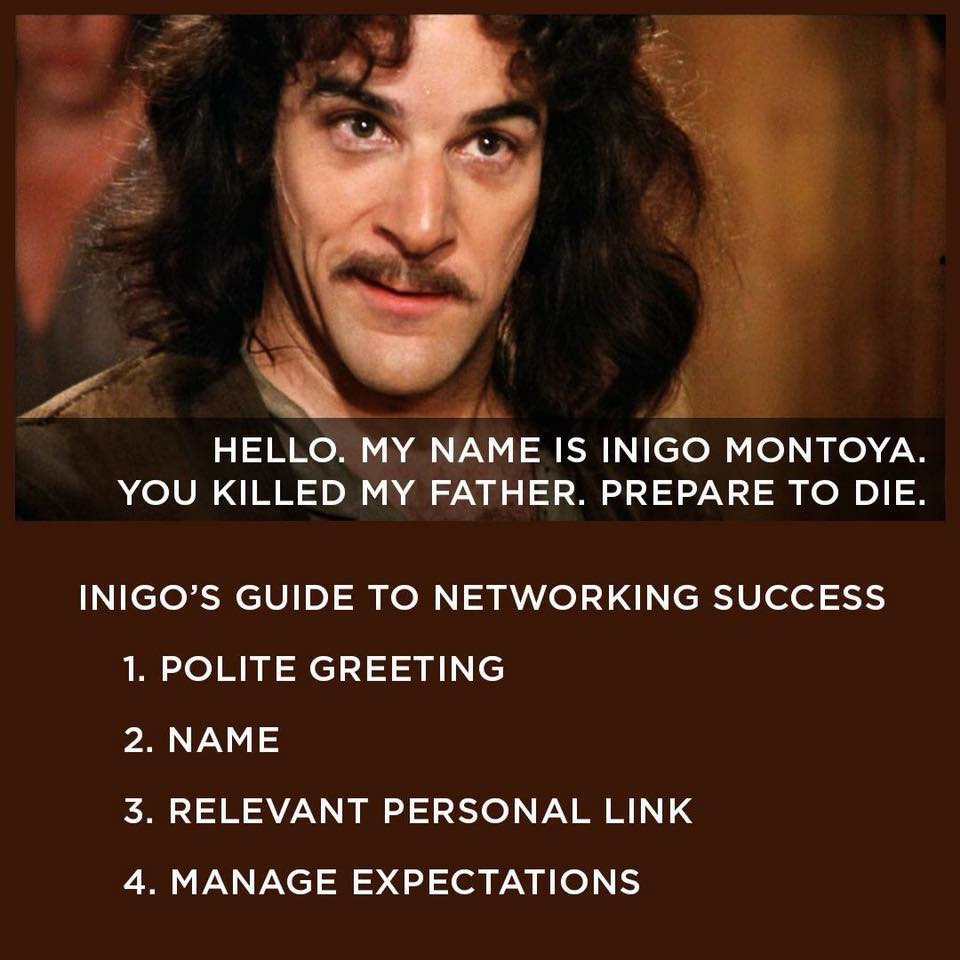 It amazes me how people make things more difficult through communication, enough so that sometimes I wonder if there is a special group of us that talks to ourselves for lack of anyone else receiving on the other end.
It amazes me how people make things more difficult through communication, enough so that sometimes I wonder if there is a special group of us that talks to ourselves for lack of anyone else receiving on the other end.
Exhibit A.
Last year, here in Trinidad and Tobago, someone asked me to be a reference on a visa application – which I willingly did because I know these people. I was at their house, filled out the form for their granddaughter and thought this was done other than a phone call. There was no signature, just the filling out of a name, address and phone number – as most references are.
Time passed – maybe a week. The grandfather calls me and tells me that they had filled out the old form and that they needed a new form filled out – and so, I told him it was a simple matter of copying the information over. He said that the new document needed a signature, which I was sure was not the case. He insisted, dropped by…
And lo! There was no signature necessary. It was as I expected, the form simply needing the same information that was on the old form, that anyone could have copied over. I showed him that, and he got upset with me. I filled it out anyway. We’re friends.
Why did he get upset? It took some time to unravel that. This 70-something year old man was upset because his granddaughter told him it needed my signature. She’s in her mid-20s, a product of an education system that apparently can’t distinguish between simply filling out a name and actually signing something.
It broke down to a functional literacy failure, something that I’ve found increasingly common.
Exhibit B
I was ordering a breakfast I normally order at a place I am a regular at, from a lady I normally order from and who is familiar with my order. The scene was tense for some reason as I walked in, having nothing to do with me. Yes, I asked, and she would have told me – which is why I value this relationship.
The sound of the AC was buzzing above the register, and the background noise of the busy place was at a high. I hear her say that there’s ‘No ham bacon’.
I’m puzzled by this. “Do you have ham?”
“No ham bacon”.
We go on like this for a few moments. She doesn’t speak up. I’m not understanding what she’s trying to tell me, and I know that she is trying to help me. After a while, it gets sorted out when she finally raises her voice a bit so I can hear over the background noise – when she spoke quietly, her voice was deeper and it merged with the underlying buzz.
She was saying there was no ham, only bacon.
But why couldn’t I hear her? Frankly, maybe I should get my hearing checked – I should get on that – but the other part of it was that she was upset and was making a conscious effort not to raise her voice because she was upset about other things.
This was a situational communication problem. Had we not known each other, it probably wouldn’t have ended with both of us laughing.
Exhibit C
I’d sold a piece of land to someone who was already on it – a simple solution (hack) to a silly problem caused by laws in Trinidad and Tobago – and a year had passed.
Out of the blue, I see this person is trying to contact me on Facebook messenger – by calling me (who does that?). So I message them back, and they message me that they were having trouble registering the deed. A year later.
Now, they had my phone number. After a year, this suddenly became an emergency – which is easy to judge someone on without knowing how their life is, but a year is a long time and I know that the deed registration had to have been done or I would have heard about it from the lawyer, who I do know, and who has done other transactions similarly.
Something wasn’t adding up, and it was already clear that this was a communication error.
I sent them my phone number – they should already have had it. Then they tell me that they don’t have my phone number. I respond that I just sent it. “Scroll up.”, I typed, even as I wanted to scream it.
11 messages and 5 phone calls later, they tell me that they’re at the tax office and can’t find the deed number. And this is where a lack of specialized knowledge created the core communication error – they were confusing the assessment number and deed number up, and finally, after repeating myself a few times, it sunk in. They blamed the government office for not telling them, but based on everything I had experienced with the person…
I was pretty sure that the person just wasn’t paying attention to what anyone had told them, written to them, or tattooed on their forehead. The whole situation showed over and over that they were not interested in finding out what they needed to know to solve their problem. They were happy just annoying people until someone held their hand and guided them to the right solution.
Maybe they were hugged too much as a child. I don’t know.
But this example shows not only a problem with understanding specialized things, but also the joys of dealing with people who do not listen well.
Exhibit D.
In dealing with purchasing something, I ended up dealing with 3 separate entities who are allegedly working together: A lawyer, the seller, and the agent. During this process, I handed over documents required to the seller.
Their lawyer contacts me. They want me to come up and submit the very same documents to them. I explain that the seller has the documents, and the lawyer tells me that they can only receive those documents if I authorize the seller to release them.
The rub here is that the seller has their own lawyer that, by circumstance, I have to use. One would think that the documents that the seller had would be furnished to the lawyer. The lawyer explains that it’s to safeguard my privacy (nevermind all the photocopies of my IDs hanging around) – but it’s really a process failure.
In the course of a few hours, I get conflicting information from all 3 parties who were legitimately trying to help me around the process failure, which I ended up resolving by simplifying. I only need to deal with the lawyer. What she says is what we go with, in the hope that it all falls together properly.
So this was a conflicting communication error, caused by trying to work around a process failure. I have to wonder how many people get stuck in those loops.
So Many Problems.
This is just a sampling. All of these communication problems, at their core, are human problems. In an age when we can communicate so quickly all over the world – I remember a time when postcards were a big deal – we still don’t communicate well enough to make use of it.
We build things on communication. We build things on flawed communication. Technology is not waiting for us to get it right; it’s a wildfire of acceleration on all fronts.
Take a moment. Take a breath. Listen. Speak clearly. Know of what you speak of. Ask the right questions.
Communicate. The world actually does depend on it, and more specifically, your world depends on it.
 I was connecting with someone who ran into me while I was having some naan and other things in Maraval, Trinidad, after the fact – through Facebook messenger.
I was connecting with someone who ran into me while I was having some naan and other things in Maraval, Trinidad, after the fact – through Facebook messenger. Not too long ago, I watched a mother and daughter sitting at a coffee shop in a mall. I took a picture of them.
Not too long ago, I watched a mother and daughter sitting at a coffee shop in a mall. I took a picture of them. But this all has created voids of understanding. Yesterday, a young man I know asked on Facebook about why people would tell him that if he had an anime profile picture his opinion didn’t matter. I explained to him that people saw an anime picture and saw someone who preferred to be identified as something that they aren’t as opposed to someone they are.
But this all has created voids of understanding. Yesterday, a young man I know asked on Facebook about why people would tell him that if he had an anime profile picture his opinion didn’t matter. I explained to him that people saw an anime picture and saw someone who preferred to be identified as something that they aren’t as opposed to someone they are. I’ve seen it. I’ve reacted to it. I’ve done it. It’s this fumbling through with fingers that can make any sort of communication awkward.
I’ve seen it. I’ve reacted to it. I’ve done it. It’s this fumbling through with fingers that can make any sort of communication awkward. This meme is making the rounds – and while it is funny, for those who have seen ‘
This meme is making the rounds – and while it is funny, for those who have seen ‘



